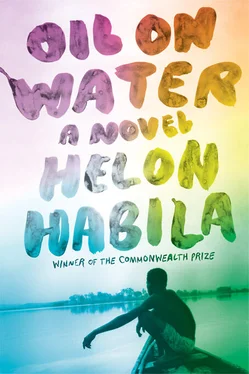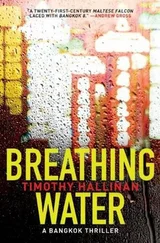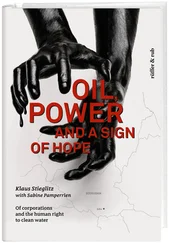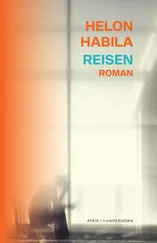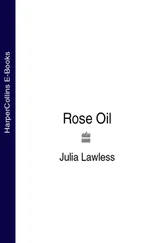After the meal, which I could still feel suspended in a hard lump between my chest and my stomach, I sat in the deserted newsroom to recover from my ordeal. Most of the reporters were out on their beats and would start to trickle in only in the late afternoon, when they wrote their pieces for the next day. When I felt the strength return to my legs, I stood up and crossed over to the editor’s office. I found him seated behind his desk, the fan in the corner focused directly at his face, a toothpick stuck between his lips, his tie loosened, exposing his lumpy neck.
— Ah, here comes our star reporter. When are you going to see the husband?
— Right now. He’s expecting me. I just came in to let you know—
— Go, go. Make sure you get a good interview.
— Well, he said no interviews, till after everything is over.
— Once it’s over, it’s over, isn’t it? Anyway, go get whatever you can out of him, then take the rest of the day off. And take the day after that. We’ll find a nice exciting assignment for you when you come back.
He stood up and shook my hand. His behavior toward me had dramatically changed since I’d returned from Irikefe.
— The Chairman is really pleased with you. He thinks you’ll make a good reporter. We shall see.
THE FLOODES’ HOUSE was one of the many colonial-style buildings on the Port Harcourt waterfront, where most of the wealthy expatriate oil workers lived. It was hidden behind a tall, barbed-wire-topped wall, and I passed through two gates and about half a dozen security men talking to each other on radios.
I was led in by a uniformed guard. We crossed a huge lawn to the front door, which the guard pushed open without pressing the bell. I followed him into a spacious living room dimly lit by shaded wall lights; an ornamental fan turned slowly in the center of the ceiling. We went out through a back door that led to the patio, where Floode was waiting, seated on a wicker chair, a cocktail on a glass table in front of him. He waved the guard away, then he stood up and took my hand.
— Thank you for coming, Mr. .
— Rufus.
— That’s a good name. Is that a common name around here?
— I know a few.
He waved me to sit.
— I haven’t been here long, you know. This is my second year in the country and I’m still trying to understand the place and the people. I think Nigerians are very nice and hospitable.
— You still think so, even after the kidnapping?
James Floode looked momentarily surprised at my directness, but I wanted to get to the point as quickly as possible. I wasn’t used to talking to people like him, and I was nervous. He sighed and his eyes turned dark as he reached forward and picked up his drink. He must have had a few before my arrival: his movements were slow and deliberate, just like his speech. So far he had refused to talk to the media, including his country’s media, apart from a few prepared comments about missing his wife and his hopes that the kidnappers would release her soon. I’d be the first reporter he had agreed to speak to — I was aware how important this moment was, even though I was here by default.
— Tell me, are you married, Mr. Rufus?
— No. Please call me Rufus: it’s also my first name. No, Mr. Floode. I’m not married. I’m only twenty-five.
— Call me James. Well, a lot of you chaps do marry rather early, isn’t that so? A few of the workers I know, very young, but they always talk about their families. Children and all.
— Yes, there are a lot who marry early.
He sighed again and went quiet, as if he had lost interest in that thread of talk. He stood up.
— Let’s go inside. I’ll show you something.
Drink in hand, he led the way into the living room. He picked up the remote and flicked on the TV and there, on the BBC channel, they were talking about the kidnapping. Isabel Floode, a British woman, had been kidnapped by rebels in the Niger Delta, an attempt to make contact was spoiled by an unplanned military intervention, and now it was doubtful if Isabel was still alive. Some oil companies had already stopped sending expatriate workers to the region, and were even thinking of shutting down their operations because the cost was becoming higher than they could bear, and this possibility was already causing a tension in the oil market, with prices expected to rise in response.
He turned off the TV.
— It’s like a circus. I can’t go out, not even to the office, reporters stalk me everywhere, and the funny thing is I don’t even know what to tell them, I don’t know what’s happened to her. That’s why I wanted Zaq to go in there and find out. And now you say he’s not well. What’s wrong with him? Is it serious?
— He needs rest. The air out there is good for him.
James scratched his stubbled chin, again looking at me strangely, waiting for me to say more, but I returned his look and kept quiet.
— But we had a deal, he agreed to go out there and be my eyes and ears.
— Mr. Floode—
— Call me James.
— James, there really isn’t anything more to report than what we’ve put in the paper.
— But what do you think? Is she alive or not? You said you have some pictures for me. Did Zaq give you any message for me?
I showed him the pictures, the ones that hadn’t been published in the papers: the burning boat, the houses, the sculptures on Irikefe, and finally a picture of myself with Zaq under a tree. Zaq had suggested the last just for proof. Floode put them back into the envelope and placed them beside his drink on the table.
— Let’s get you a drink.
He picked up a bell from a side table and rang it loudly. Then, as if unable to keep away from the news, he turned on the TV again. The screen was filled by a blown-up photo of a smiling Isabel, and behind her was a crowded street, a bridge, and far in the distance the iconic Big Ben clock tower. Next, there was a shot of picketing youths holding placards in front of an oil-company building in Port Harcourt. This segment was accompanied by a long, rote-like voice-over about poverty in Nigeria, and how corruption sustained that poverty, and how oil was the main source of revenue, and how because the country was so corrupt, only a few had access to that wealth.
Floode turned off the TV and turned to me. — Such great potential. You people could easily become the Japan of Africa, the USA of Africa, but the corruption is incredible.
I said nothing, I looked to the door to see if the maid was coming in answer to Floode’s ring. He warmed to this topic, scratching his chin vigorously as he spoke.
— Our pipelines are vandalized daily, losing us millions. . and millions for the country as well. The people don’t understand what they do to themselves. .
— But they do understand.
— What?
— Have you ever heard of a town called Junction?
— No. I don’t think so. .
— I’m from there. Almost five years ago I came home from Lagos after graduating from journalism school and found half the town burned down. The newspapers said the villagers brought it upon themselves by drilling into the pipelines to steal oil. .
— Yes, I have heard of that, isn’t that a place called Jesse?
— That is a different place. There are countless villages going up in smoke daily. Well, this place, Junction, went up in smoke because of an accident associated with this vandalism, as you call it. But I don’t blame them for wanting to get some benefit out of the pipelines that have brought nothing but suffering to their lives, leaking into the rivers and wells, killing the fish and poisoning the farmlands. And all they are told by the oil companies and the government is that the pipelines are there for their own good, that they hold great potential for their country, their future. These people endure the worst conditions of any oil-producing community on earth, the government knows it but doesn’t have the will to stop it, the oil companies know it, but because the government doesn’t care, they also don’t care. And you think the people are corrupt? No. They are just hungry, and tired.
Читать дальше
